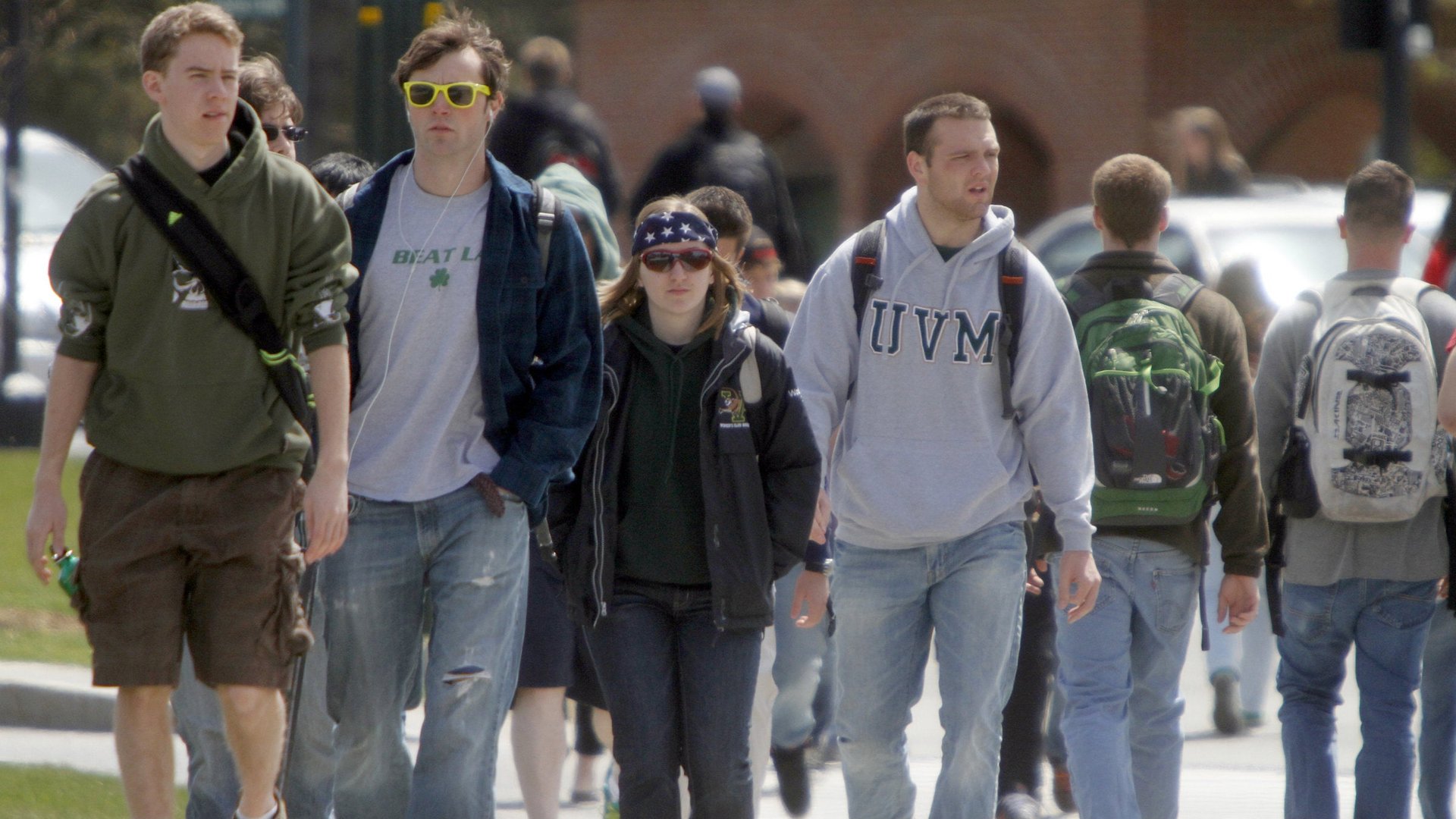It’s time for American students to rethink their “dream” colleges
This year Harvard’s admission rate fell below 6%, with Yale and Columbia in the same neighborhood. If you disregard the students selected towards meeting some admission goal criteria—Harvard recruits for some forty athletic teams, for example, and wishes to pacify influential alumni parents as much as the next school does—that leaves very little place for the “unhooked” (those who are not Olympic athletes, math prodigies, or the children of the prodigiously wealthy and influential) and simply bright. Therefore, admission officers counseling students to “follow their passion” rightly annoy visitors to the most selective colleges. It is a vapid statement that assumes most teenagers have already uncovered a passion or that all “passions” are equal in the college admission process.


This year Harvard’s admission rate fell below 6%, with Yale and Columbia in the same neighborhood. If you disregard the students selected towards meeting some admission goal criteria—Harvard recruits for some forty athletic teams, for example, and wishes to pacify influential alumni parents as much as the next school does—that leaves very little place for the “unhooked” (those who are not Olympic athletes, math prodigies, or the children of the prodigiously wealthy and influential) and simply bright. Therefore, admission officers counseling students to “follow their passion” rightly annoy visitors to the most selective colleges. It is a vapid statement that assumes most teenagers have already uncovered a passion or that all “passions” are equal in the college admission process.
Where does this leave high school seniors, their parents and their dream schools? The college application process may seem absurd, but no more so than a parent railing at an Ivy admission officer about a decision that has “ruined” his or her child’s life because instead of Brown the student will attend Bowdoin. Yet it is also possible that an arms race amongst applicants risks squeezing from a college’s incoming class the late bloomers and the unconventional minds whose creativity leavens campus life.
Recently, a Pittsburgh high school senior named Suzy Lee Weiss wrote Wall Street Journal op-ed by entitled,“To (All) The Colleges That Rejected Me,” as a satirical comment on the state of selective college admission. Weiss writes:
For starters, had I known two years ago what I know now, I would have gladly worn a headdress to school. Show me to any closet, and I would’ve happily come out of it. “Diversity!” I offer about as much diversity as a saltine cracker. If it were up to me, I would’ve been any of the diversities: Navajo, Pacific Islander, anything. Sen. Elizabeth Warren, I salute you and your 1/32 Cherokee heritage.
Many of Weiss’ fellow “underachieving” peers no doubt also fretted at the fact that if a senior as obviously bright and skilled a writer as she had “failed to get into the colleges of their dreams,” what chance do they have?
They would feel even more fearful if they knew just how accomplished many of their peers truly are. To troll through the applicant pool of the most selective universities is to be astonished by the accomplishments, the academic preparation, and the busy lives of high-achieving teenagers. There are indeed kids who claim Native American ethnicity on their application (invariably Cherokee) because they are either ignorant about or indifferent to a long history of racial exclusion, or pad an activity list with more community service activities than there are hours in a week, there are also teenagers out there who do have extraordinary minds, run national campaigns, and have worked to overcome unbelievable odds in their young lives. Colleges do pursue them, and they should.
These applicants are, however, by definition exceptional and underlying Weiss’ witty rant about the absurdity and hypocrisy that can accompany selective college admission, is also some truth. The notion that winning selective admission requires only that students “be themselves,” is indeed ludicrous.
Meanwhile, students like Weiss are not only learning that admirable aspirations do not entitle you to admission to your dream school, but also that you might actually want to redefine what a dream school is. It may not be the one with ivy on its walls, but a place where you can explore ideas you had never encountered before alongside peers from worlds that are unknown to you, led by mentors who can help set your minds on fire. There are over 4,000 degree granting institutions in the US, and all but a small number of them will accept more than half of their applicants. Admission to a dream school that is your own and not simply society’s, may have more to do with thoughtful research than with having a tiger mom and wearing a headdress to school.